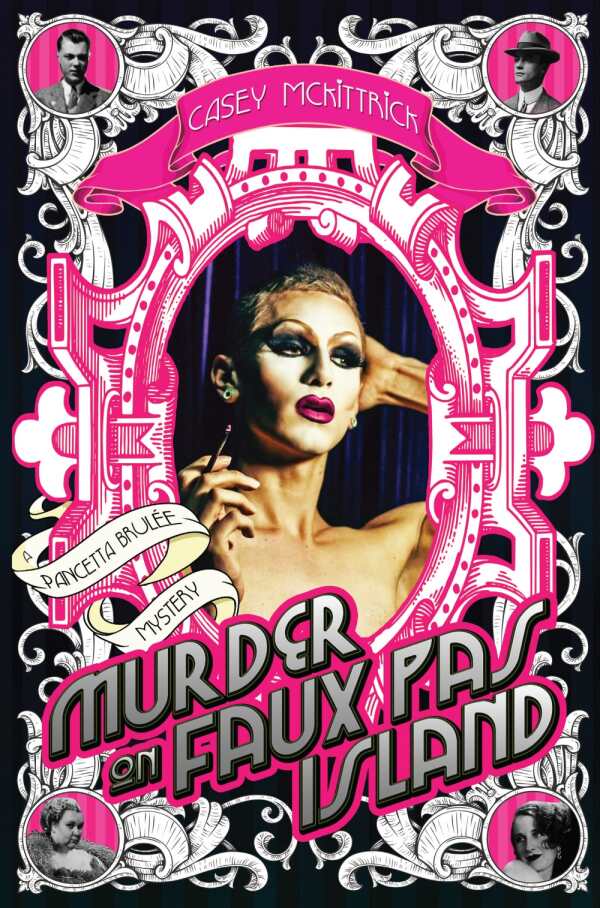Murder on Faux Pas Island
Set in a more progressive version of 1935, this is a tightly plotted mystery with refreshing characters.
Imagine a Southern United States of the 1930s even more accepting of LGBT people than America currently is; therein lies the impressive genius of Casey McKittrick’s Murder on Faux Pas Island. In 1935 Louisiana, an amateur sleuth and professional caterer blends his assigned identity, a man named Chet, seamlessly with that of his drag identity, a woman named Pancetta Brulee.
When two wealthy Louisiana families ask Pancetta to cater an engagement party for their sons, the protagonist never imagines that she will be asked to solve a murder as well. The author’s ability to effectively mesh a speculative past with an actual one creates a realistic backdrop to the story that pulls one in from the very first page. Setting the book in this intriguing, fictionalized version of 1935 allows a refreshing return to the days when whodunits couldn’t be solved with a mouse click. Instead, the audience find themselves wound up in a tightly plotted, tangled mystery full of unexpected twists. With only two and a half days to solve the crime before the guests all go home, there’s a heightened sense of urgency.
The characters remain well drawn, and easy to distinguish from one another. Although the list of possible suspects is large, it is easy to remember who is who because of their vivid histories and strikingly unique motives. The author deftly and delicately describes the food Pancetta dishes up, and her sumptuous meals are used as gathering points for those accused.
The romantic rekindling of one of Pancetta’s old relationships adds some loving spice. Joe, the love interest, finds himself attracted to Pancetta, and to Chet; like the protagonist, Joe has no problem seeing these identities as connected parts of the same person. This represents a welcome change from the trope of self-hating queer people that sometimes exists in this genre.
The book bursts with clever turns of phrase, such as “hoping to project a moment of calm” and “his hulking body deflated from shame.” Hopefully McKittrick will pen more Pancetta Brulee mysteries in the future.
Reviewed by
Jill Allen
Disclosure: This article is not an endorsement, but a review. The publisher of this book provided free copies of the book to have their book reviewed by a professional reviewer. No fee was paid by the publisher for this review. Foreword Reviews only recommends books that we love. Foreword Magazine, Inc. is disclosing this in accordance with the Federal Trade Commission’s 16 CFR, Part 255.

